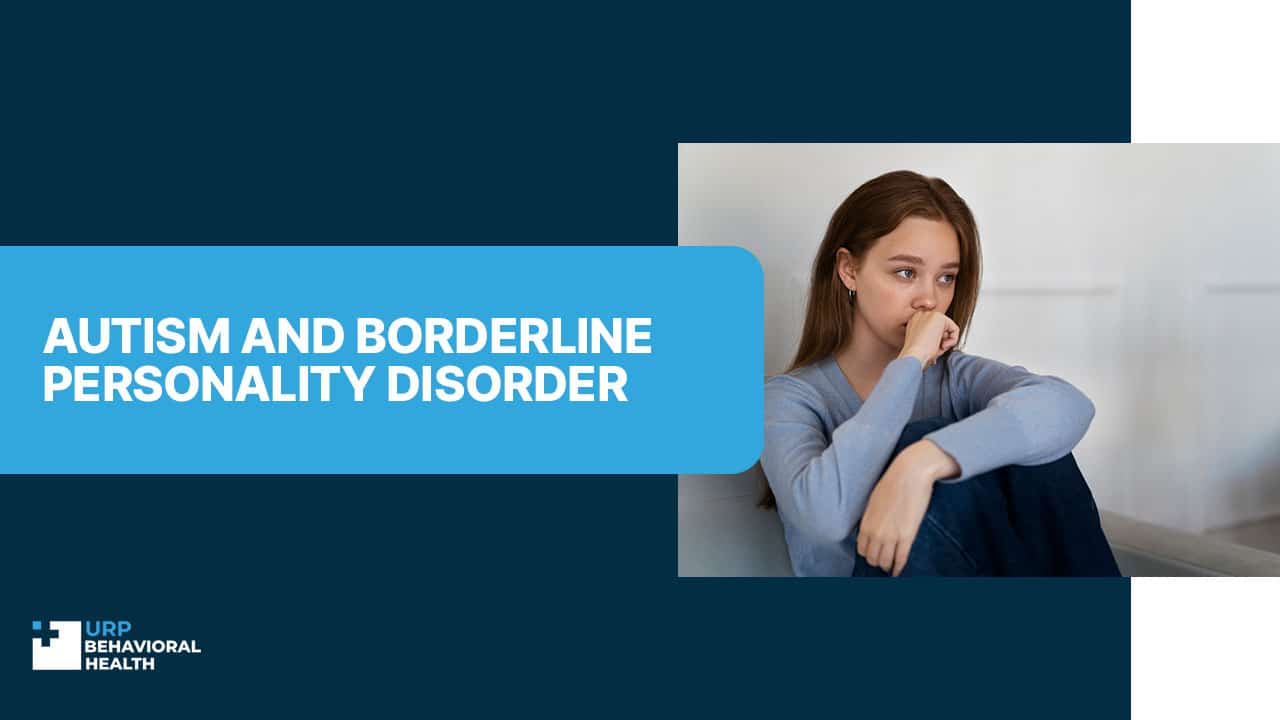
Autism and Borderline Personality Disorder: Similarities and Differences
Autism remains one of the most significant mental states impacting the whole life navigation of a person. At the same time, it is often mistaken for borderline personality disorder. Are autism and BPD similar in their manifestations? Why are they considered to be different diagnoses? What is the correlation between ASD and BPD? You can get answers to these questions in this blog article.
The Main Difference Between Autism and BPD
The main reason why these two diagnoses are frequently mistaken one for another is in the core symptoms which are typical for both autism and borderline personality disorder. Autism and BPD overlap [1] in the following traits:
- Social and emotional regulation difficulties
- Impulsive reactions to routine activities and events
- Inability to build strong relationships
- Mood swings
- Low empathy
Yet, there are more specific BPD symptoms which are not characteristic of autism like the tendency for suicide, self-harm, and impulsive anger outcomes. Moreover, BPD patients in their severe episodes can suffer from hallucinations and delusions, they have issues of self-hatred.
Contact our admissions team now to begin your path toward a brighter future.
In ASD, there is a wide spectrum of subtypes from highly functioning to fully disabled. But typically, patients with ASD don’t tend to self-harm except for the issues of sensory overload. They don’t have extra expectations from their relationships, and they are not dependent on other people’s attitudes to them and their opinions. If comparing BPD vs autism in terms of social relationship understanding, BPD patients have trouble with relationship instability due to their impulsive behavior patterns while autistic patients hardly understand the concept of social relationships and experience trouble with being engaged in them.
One more thing to understand that’s so specific in the BPD and autism relationship is the time of their manifestation and its causes.
- Autism is a neurodevelopmental disorder which emerges in early childhood and impacts the whole development of personality in children and then in adults, It’s a life-long condition which cannot be cured but can be compensated to provide an individual with an opportunity to integrate into society in a certain way.
- BPD manifests in young adulthood with no considerable traits noticed in children. Moreover, if the roots of autism are still unclear to science, BPD has both genetic and childhood trauma-based essence. It is typically developed in young adults who surpassed issues of child abuse, neglect, and early separation from their caregivers.
So, the differences are considerable both in the symptomatic and etiology of both these mental disorders.
Can You Have BPD and Autism at the Same Time?
Although the differences between BPD and ASD are clearly understandable, why there are still mistakes in society? The reason is you can have BPD and autism together [2]. According to the study, the following results were crystallized:
- The prevalence of BPD in ASD-diagnosed patients was 4%
- The prevalence of ASD in BPD-diagnosed patients was 3%
These rates also show that the prevalence of each disorder in the cohort resembles the prevalence in the whole population.
That is, if you were diagnosed with each of them, there is also an opportunity for you to have another disorder.
We’ll help you understand your options and guide you toward care.
Can Undiagnosed Autism Cause BPD
In general, the risks are high. They are caused by the roots of borderline personality disorder which lie in childhood traumas. Undiagnosed autism causes high victimity and vulnerability in patients. If a child feels abandoned and neglected, there are risks this traumatic experience can lead further to BPD development in older age.
Similarly, poor understanding of social relations and low engagement in them in childhood can be traumatic and lead to emotional abuse which is also among the most significant BPD triggers.
Are Autistic People Often Misdiagnosed with BPD?
Today, the risks of being misdiagnosed are lower than a decade ago due to the changes in diagnostics of autism. Since ASD became accurately diagnosed in children of an early age, misdiagnosed issues reduced. The possibility of being misdiagnosed remains in patients who are highly functioning autistic persons with well-developed integration in society. Do not forget that BPD is not diagnosed until the person reaches adolescence, that’s why such issues can occur only in patients of 20+ years old.
Summarizing all the facts about autism and BPD comorbidity, it’s important to notice the following points:
- BPD and autism are both mental disorders, but they have different causes and essences. A borderline personality disorder is caused both by genetic factors and social ones. Autism is a neurodevelopmental condition.
- The core symptoms overlapping in ASD and BPD are the inability to build social relationships and maintain them, low empathy, and impulsiveness. Sometimes, other symptoms also overlap due to the specifics of the disorder’s manifestation.
- Autism is a life-long disorder while BPD develops typically in young adults and can be compensated at a senior age.
- From 3% to 4% of diagnosed autistic patients have BPD and borderline personality disorder patients also have autistic features.
- Although both disorders complicate life navigation and social interactions, they can be stabilized by adequate therapy. In ASD, therapeutic methods are aimed at helping a patient to achieve social skills and reduce anxiety while in BPD, treatment methods are intended to provide higher emotional and behavioral control and reduce self-destructive and depression episodes.
Living with both autism and borderline personality disorder is challenging. When you have a person you suspect to have one of these disorders, timely medical help can be dramatically important. Please, do not delay diagnostics and start of therapy. You can get help in URP Behavioral Health, the healthcare center focused on BPD and autism treatment and support. Get a qualified mental health evaluation from our specialists and start a new page in your life without the painful impact of BPD and autism on it.
Reach out today and let us create a treatment plan designed around your needs.
Resources:
- https://journals.plos.org/plosone/article?id=10.1371/journal.pone.0184447
- https://pubmed.ncbi.nlm.nih.gov/34608760/
















